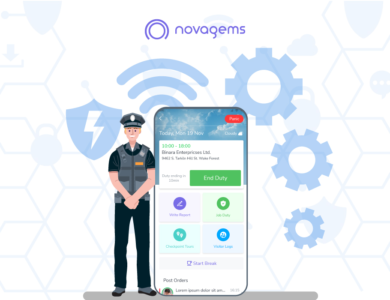Lessons Learned About Remote Laravel Team Management
Remote Laravel Team Management - Valuable Lessons Learned

Introduction
The landscape of software development has been significantly reshaped by the rise of remote work. With Laravel being one of the most popular PHP frameworks, many companies have adopted a Remote Laravel Team to leverage its capabilities. The shift to remote work has brought about a new era in the tech industry.
It offers several benefits, such as access to a global talent pool, reduced overhead costs, and increased flexibility. For Laravel development teams, this transition has necessitated new strategies and tools to maintain productivity and collaboration.
On the other hand, managing remote Laravel teams comes with its own set of challenges and opportunities. Through experience and continuous improvement and the remote team lessons learned one can help elevate the productivity of remote Laravel teams.
This article delves into the past experience, providing insights and remote work best practices to ensure success.
What Is Remote Laravel Team Management?
Managing a remote Laravel team effectively involves several key steps and best practices to ensure the project is completed successfully and meets the desired quality standards.
This management approach involves overseeing the team’s productivity, ensuring effective communication, maintaining high-quality code standards, and fostering a collaborative work environment, all while addressing the unique challenges posed by remote work.
Key Components of Remote Laravel Team Management
- Effective Communication
- Project Management
- Documentation
- Time Management
- Performance Monitoring
- Tools and Technology
- Team Building
- Professional Development
- Detailed Specifications
- Goals and Objectives
- Milestones and Deadlines
- Choose the Right Outsourcing Partner
Lessons Learned
Lesson 1:
- Clear Communication is Key: Effective communication is the backbone of any successful remote team. Remote Laravel teams must rely on clear and structured communication methods without face-to-face interactions.
- Regular Meetings: Daily stand-ups, weekly check-ins, and monthly reviews help keep everyone aligned and informed. These meetings should be concise and focused, allowing team members to share updates and address any blockers.
- Use of Communication Tools: Tools like Slack, Microsoft Teams, and Zoom facilitate real-time communication and collaboration. These tools should be used consistently to ensure all team members are on the same page.
- Documentation: Comprehensive documentation is crucial for reducing misunderstandings and ensuring everyone can access the necessary information. Use platforms like Confluence or Notion to document processes, decisions, and project details.
Lesson 2:
- Establish Clear Goals and Expectations: Setting clear goals and expectations is essential for guiding the team’s efforts and measuring progress. This helps maintain focus and ensure that everyone is working towards common objectives.
- Define SMART Goals: Goals should be Specific, Measurable, Achievable, Relevant, and Time-bound. This framework helps in creating clear and actionable objectives.
- Break Down Tasks: Large projects should be broken down into smaller, manageable tasks. This makes it easier to track progress and maintain momentum.
- Set Milestones: Establishing milestones provides checkpoints for evaluating progress and making necessary adjustments. This helps keep the project on track and ensures timely completion.
Lesson 3:
- Foster a Collaborative Culture: Collaboration is vital for the success of remote teams. Encouraging a culture of collaboration helps in leveraging the collective skills and knowledge of the team.
- Pair programming involves two developers working together on the same codebase. This practice improves code quality and facilitates knowledge sharing and collaboration.
- Code Reviews: Regular code reviews help maintain high standards and allow team members to learn from each other. Tools like GitHub and GitLab provide effective platforms for conducting code reviews.
- Knowledge-Sharing Sessions: Regular sessions where team members share their expertise on specific topics promote continuous learning and collaboration. These sessions can be webinars, workshops, or informal discussions.
Lesson 4:
- Invest in the Right Tools and Technologies: Using the right tools and technologies can significantly enhance the productivity of remote Laravel teams. These tools help streamline processes, improve communication, and facilitate collaboration.
- Development Tools: Tools like PHPStorm, Visual Studio Code, and Sublime Text are popular among Laravel developers. These tools provide features that enhance coding efficiency and productivity.
- Project Management Tools: Tools like Jira, Trello, and Asana help manage tasks, track progress, and ensure that deadlines are met. These tools provide visibility into the project’s status and help coordinate efforts.
- CI/CD Tools: Continuous Integration and Continuous Deployment (CI/CD) tools like Jenkins, Travis CI, and GitHub Actions automate the build, testing, and deployment processes. This reduces errors and accelerates delivery.
Lesson 5:
- Mental Health: Encouraging practices that promote balance helps prevent burnout and maintain motivation.
- Regular Breaks: Encouraging regular breaks helps maintain focus and reduce fatigue. Practices like the Pomodoro Technique, which involves working in focused intervals followed by short breaks, can be beneficial.
- Mental Health Support: Providing access to mental health resources and support helps address stress and other mental health issues. This can include virtual counseling sessions, mental health workshops, and access to online resources.
Lesson 6:
- Continuous Learning and Development: The tech industry constantly evolves, and staying updated with the latest trends and technologies is crucial for maintaining a competitive edge. Encouraging continuous learning and development helps keep the team’s skills sharp and relevant.
- Online Courses and Certifications: Platforms like Udemy, Coursera, and Pluralsight offer various courses and certifications. Encouraging team members to pursue these opportunities helps enhance their skills and knowledge.
- Webinars and Workshops: Participating in industry webinars and workshops provides opportunities for learning and networking. These events often cover the latest trends and remote work best practices in the industry.
- Knowledge Sharing: Encouraging team members to share their knowledge with each other promotes a culture of continuous learning. This can be through internal presentations, discussion forums, or collaborative projects.
Lesson 7:
- Implementing Agile Practices: Agile practices help manage remote teams by promoting flexibility, collaboration, and continuous improvement. Implementing these practices can lead to more efficient and productive teams.
- Scrum: Scrum is a popular Agile framework that involves working in short, iterative cycles called sprints. This approach helps deliver incremental value and make necessary adjustments based on feedback.
- Kanban: Kanban is another Agile methodology that visualizes work, limits work in progress, and optimizes flow. This approach helps manage tasks and improve efficiency.
- Retrospectives: Regular retrospectives help review what went well, what didn’t, and how things can be improved. This continuous improvement process is essential for maintaining high performance.
Lesson 8:
- Ensuring Security and Compliance: With remote work, ensuring the security and compliance of data and systems becomes even more critical. Implementing robust security measures helps protect sensitive information and maintain trust.
- Access Controls: Implementing strict access controls ensures only authorized personnel can access sensitive data and systems. This includes using multi-factor authentication and role-based access controls.
- Data Encryption: Encrypting data both in transit and at rest helps in protecting it from unauthorized access. This includes using secure communication protocols and encryption algorithms.
- Regular Audits: Conducting regular security audits helps identify and address vulnerabilities. This includes reviewing access logs, conducting penetration tests, and ensuring compliance with relevant regulations.
Lesson 9:
- Emphasis on Documentation: Lack of comprehensive documentation can hinder onboarding and ongoing project development.
- Invest time creating detailed documentation for processes, codebases, and project requirements. To keep documentation accessible, use centralized tools like Confluence or Notion.
Lesson 10:
- Regular Performance Monitoring and Feedback: Remote team members might feel directionless or undervalued without regular feedback.
- Conduct regular performance reviews and one-on-one meetings to provide feedback, recognize achievements, and address any issues promptly.
Lesson 11:
- Implementing Automation: Manual processes can slow development and increase the risk of errors.
- Use CI/CD pipelines and automated testing to streamline workflows and ensure high code quality. Tools like Jenkins, GitLab CI, and PHPUnit can be invaluable.
Lesson 12:
- Fostering Trust and Accountability: Trust is a critical component of remote team management. Micromanagement can demotivate team members.
- Foster a culture of trust by empowering team members and holding them accountable for their work. Use task-tracking tools to monitor progress without micromanaging.
Lesson 13:
- Adaptability and Resilience: Projects and team dynamics can change rapidly in a remote setup.
- Stay adaptable and open to change. Regularly review and adjust processes, tools, and strategies to meet evolving needs and challenges.
Case Studies
Real-World Scenario: Enhancing Productivity in a Remote Laravel Team – Case Study1
- Background: To illustrate the lessons learned, let’s consider a case study of a company that successfully enhanced the productivity of its remote Laravel team. XYZ Corp, a mid-sized SaaS company, decided to transition their Laravel development team to a remote setup. They faced challenges maintaining productivity and collaboration, leading them to implement several strategies based on the lessons learned.
- Implementing Clear Communication: XYZ Corp adopted Slack and Zoom for real-time communication and scheduled daily stand-ups, weekly check-ins, and monthly reviews. This ensured that everyone was aligned and informed.
- Setting Clear Goals and Expectations: The team defined SMART goals and divided large projects into smaller tasks. Milestones were established to track progress and make necessary adjustments.
- Fostering a Collaborative Culture: Pair programming and regular code reviews were encouraged to promote collaboration and knowledge sharing. The team also held bi-weekly knowledge-sharing sessions.
- Investing in the Right Tools: The team used PHPStorm and Visual Studio Code for development, Jira for project management, and Jenkins for CI/CD. These tools helped streamline processes and improve productivity.
- Promoting Work-Life Balance: XYZ Corp allowed flexible working hours and encouraged regular breaks. They also provided access to mental health resources and support.
- Encouraging Continuous Learning: The team was encouraged to pursue online courses and certifications. They also participated in industry webinars and workshops.
- Implementing Agile Practices: The team adopted Scrum and Kanban methodologies, working in sprints and visualizing their tasks using Kanban boards. Regular retrospectives helped in continuous improvement.
- Ensuring Security and Compliance: To protect sensitive data and ensure compliance, strict access controls, data encryption, and regular security audits were implemented.
- Outcome: By implementing these strategies, XYZ Corp successfully enhanced the productivity and collaboration of their remote Laravel team. The team reported higher job satisfaction and motivation levels, leading to improved project outcomes.
Acquaint Softtech – Great Colorado Homes -Case Study2
- Background: Great Colorado Homes were in need of a Real-Estate website to take advantage of the additional feature it had to offer. They were looking at gaining an upper edge by incorporating several advanced features in their website. Their intention was to simplify buying and selling of properties.
- Issue: They chose to hire a Laravel development company, Acquaint Softtech. This was the best decision they made because we were quick to detect issues with the communication tools.
Implementation:
- Using the right tools is crucial for the success of any project.
- The project manager at Acquaint Softtech made a timely decision regarding the communication tools.
- Here is the strategy we implemented
- Assess Team Needs and Workflows
- Integrate Tools for Seamless Workflows
- Establish Clear Communication Protocols
Outcome: We built a top-notch website for Great Colorado Homes. Our team of experts delivered the perfect solution in a timely manner. Our client, Andrew Fortune, also accepted it well. We we successfully in the following
- Enhanced Communication
- Efficient Project Management
- Improved Productivity
- Enhanced Security
A fitting quote:
“Talent wins games, but teamwork and intelligence win championships.” — Michael Jordan
Hire Laravel Developers Remote Team
Laravel is a feature-rich PHP framework and the ideal technology for creating next-generation solutions. However, a cutting-edge solution requires a highly skilled remote Laravel development team. Acquaint Softtech is one such firm, where you can hire Laravel developers to bring your vision to life.
We are a software development outsourcing company in India with over 10 years of experience. In fact, we also happen to be an official Laravel partner. Your decision to outsource is a very smart one however, it is equally important to hire the right professionals with skills to ensure proper engagement of a remote team.
Hence, there are several factors one needs to consider before making the decision to hire remote developers:
- Ensure the team has excellent knowledge of the programming language. This includes knowledge of Laravel and PHP, as well as MVC, OOP, DBMS, etc.
- The professional firm should ideally have extensive experience with project management and information on the latest technological updates.
- The team you hire ideally has knowledge of cloud computing and APIs as well.
- Soft skills are also vital when it comes to managing a remote team. This includes communication skills, creative thinking, ability to collaborate with clients using tools, etc.
Acquaint Softtech offers outsourcing and IT staff augmentation services. In fact, we have already successfully delivered over 5000 projects globally. Our Laravel experts can help you with a wide range of projects:
Some of our Laravel development services include:
- eCommerce development
- Custom Laravel application
- Cloud solutions
- Website development
- CMS development
- Migration services
Conclusion
Managing a remote Laravel team effectively requires a combination of clear communication, the right tools, a collaborative culture, and a focus on continuous learning and improvement. By implementing remote team lessons, you can enhance productivity, maintain high morale, and achieve successful project outcomes.



